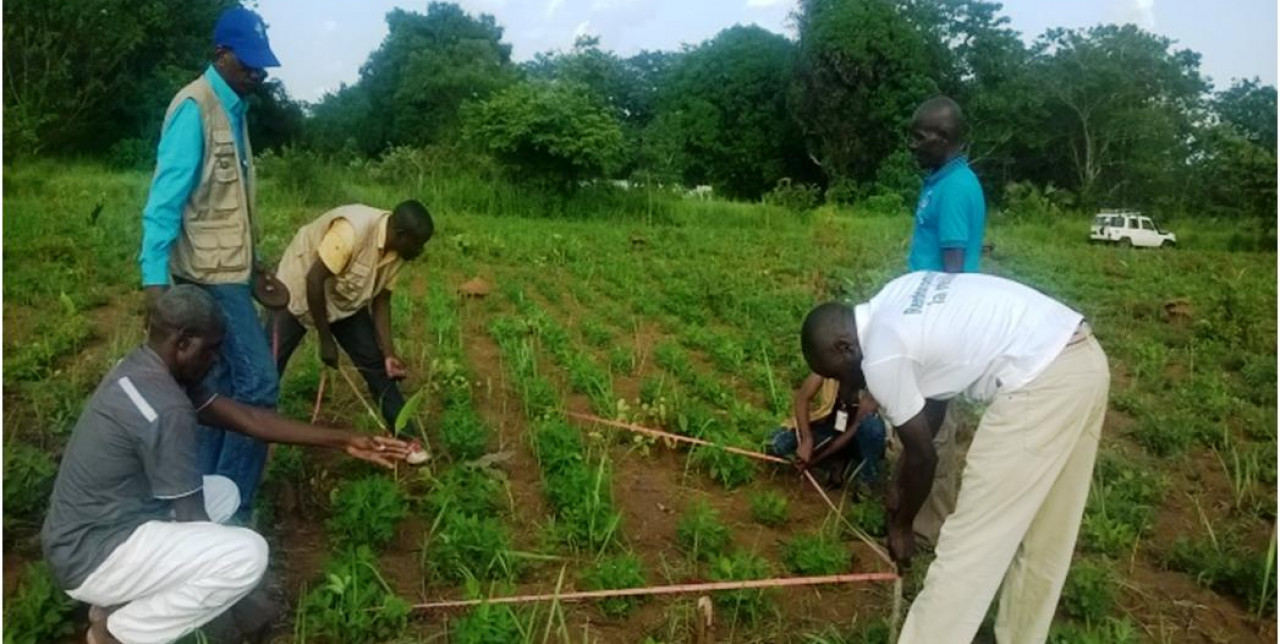05-09-2016 | di COOPI
Local farmers in Bambari raise their heads
The words of Assoumana Ibro, project leader at Bambari, tell us about the results of the food security project carried out with UNDP (United Nations Development Programme), in the Bambari area, in the heart of the Central African Republic.
What was COOPI's main objective and in what context did you find yourself operating?
Our project aimed to increase the resilience of the local population by structuring and strengthening the agricultural and livestock capacities of producer organisations. We are talking about an area strongly affected by the crisis that has been raging in the CAR since 2013. A crisis that has undermined the functioning of the agricultural and livestock sectors; in fact, attacks by armed groups have caused forced displacement of the population, generating a deterioration in agricultural profitability and consequently in the living conditions of local populations. In the area between the cities of Bambari and Ippy, the population has no access to food resources and suffers from a constant lack of food.
What actions have been taken to meet the needs of the local population?
Interventions have focused mainly on strengthening producer associations. In particular, we restored the Union des Groupements Agro Pastoraux (UGAP) in Bambari, an organisation that existed only informally before the project. Its institutionalisation has strengthened its effectiveness by transforming it into a reference platform for rural producers in the area.
Through the UGAP, specific training activities were subsequently carried out to provide producers with technical skills in agriculture, horticulture and small ruminant and poultry farming.
On the one hand, farmers were able to learn new soil fertilisation techniques, seed characteristics, harvesting and storage methods, also thanks to the support and training of the ACDA (Agence Centrafricaine de Dévelopement de l'Agriculture); despite the fear of attacks by armed groups, they managed to cultivate 300 hectares of land, with peanuts, sesame, pumpkins, maize and Niébé. On the other hand, the farmers received 283 goats and 400 birds and had access to training activities from the Agence Nationale de Développement de l'Elevage (ANDE), thanks to which they were able to strengthen their knowledge of farming practices and veterinary techniques to monitor the health of the livestock.
How were the beneficiaries of the project selected?
The beneficiaries are all part of groupements. In other words, organisational structures in which local producers were grouped, including the most vulnerable men and women.
Have you encountered any form of resistance or difficulty?
Safety issues are the main difficulty of the Bambari sub-prefecture. The clashes between the rebel armed forces, the intra-community conflicts between Muslims and Christian militias, the anti-balakas, together with the continuous raids and armed attacks have forced the team to restrict its intervention on the axis Bambari-Ippy and also to certain areas of the Bambari centre. State services are finding it difficult to implement, and populations are dispersed and prevented from accessing arable land.
COOPI has been in the CAR for more than 40 years. What are the specific knowledge and skills now acquired that we can put in place to improve the lives of local people with projects like this?
We have carried out many food security projects in this country. The experience we have gained in more than forty years today allows us to focus our interventions on the rehabilitation of the means of production and agricultural development that goes beyond a subsistence economy, through training, the provision of production tools and the development of marketing channels.
What will be the future of the communities in which COOPI has intervened?
Thanks to this project, the population of Bambari has raised its head. For some people, the project was an opportunity to resume their economic activity, which was interrupted in 2013 by the crisis. Today, local producers have the possibilities and skills to continue to cultivate agricultural land.
The UGAP has launched a five-year plan, 2016-2021, which provides for the establishment of banks for the distribution of seed and agricultural products to cope with periods of low income and give the community the opportunity to cultivate the land more consistently and profitably in view of the upcoming harvests.




